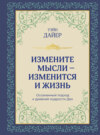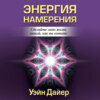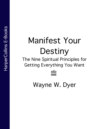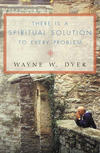Читать книгу: «Wisdom of The Ages: 60 Days to Enlightenment», страница 2
KNOWING
Do not believe what you have heard.
Do not believe in tradition because it is handed down many generations.
Do not believe in anything that has been spoken of many times.
Do not believe because the written statements come from some old sage.
Do not believe in conjecture.
Do not believe in authority or teachers or elders.
But after careful observation and analysis, when it agrees with reason and it will benefit one and all, then accept it and live by it.
BUDDHA
(563 B.C.–483 B.C.)
Founder of Buddhism, one of the world’s major religions, the Buddha was born Prince Siddhartha Gautama in northeast India, near the borders of Nepal. Seeing the unhappiness, sickness, and death that even the wealthiest and most powerful are subject to in this life, at age twentynine he abandoned the life he was living in search of a higher truth.
The name Buddha is actually a title that translates to the “awakened one” or the “enlightened one.” It is the title given to Siddhartha Gautama, who left behind the princely life at the age of twenty-nine and went on a lifelong search for religious understanding and a way of release from the human condition. It is said that he discarded the teachings of his contemporaries and through meditation achieved enlightenment or ultimate understanding. From then on he assumed the role of teacher, instructing his followers in the “dharma,” or truth.
His teachings became the basis for the religious practice of Buddhism, which has played a major role in the spiritual, cultural, and social life of the Eastern world, and much of the Western world as well. I have deliberately chosen not to write, in this essay, on the tenets of Buddhist doctrine, but rather to take this often-quoted passage of the Buddha and discuss its significance to you and me today, some twenty-five centuries after the death of the enlightened one.
The key word in the passage is “believe.” In fact, the key phrase is “Do not believe:” Everything you carry around with you that you call a belief has become your own largely because of the experiences and testimonies of other people. And if it comes to you from a source outside yourself, regardless of how persuasive the conditioning process might be, and of how many people just like you have worked to convince you of the truth of these beliefs, the fact that it is someone else’s truth means that you receive it with some question marks or doubts.
If I were to attempt to convince you about the taste of a delectable fish, you would perhaps listen but still have your doubts. Were I to show you pictures of this fish, and have hundreds of people come to testify about the veracity of my statements, you might become more convinced. But the modicum of doubt would still remain because you hadn’t tasted it. You might accept the truth of its deliciousness for me; but until your taste buds experience the fish, your truth is only a belief based on my truth, on my experience. And so it is also with all the well-meaning members of your tribes, and their tribal ancestors before them.
Just because you have heard it, and it is a long-surviving tradition, and it is recorded over the centuries, and the world’s greatest teachers have endorsed it, those are still not reasons to accept a belief. Remember, “Do not believe it,” as Buddha instructs.
Rather than using the term “belief,” try shifting to the word “knowing.” When you have the direct experience of tasting the fish, you now have a knowing. That is, you have conscious contact and can determine your truth based on your experience. You know how to swim or ride a bicycle not because you have a belief, but because you have had the direct experience.
You are being reminded, directly by the “enlightened one” of twenty-five hundred years ago, to apply this same understanding to your spiritual practice. There is a fundamental difference between knowing something and knowing about something. “Knowing about” is another term for belief. “Knowing” is a term reserved exclusively for direct experience, which means an absence of doubt. I recall a well-known Kahuna healer responding to my questions about how a Kahuna becomes a healer. He said to me, “When a knowing confronts a belief in a disease process, the knowing will always triumph. Kahunas,” he explained to me, “were raised to abandon all doubt and to know.”
When I think of the parables of Jesus Christ as a great healer, I can’t conjure any doubt. When Christ approached a leper he wouldn’t say, “We haven’t been having a great deal of success with leprosy lately. But if you follow my advice you’ll have a thirty percent chance of survival over the next five years.” You can see all the doubt that is present in such a stance. Rather, he would say from an absolute state of knowing, “You are healed.” This is the same state of conscious contact with knowing from which St. Francis performed his healing miracles as well. In fact, all miracles come from shifting out of doubt and into knowing.
Yet the persuasiveness of tribal influences is exceedingly powerful. You are constantly being reminded of what you should or shouldn’t believe, and what all our tribal members have always believed, and what will happen to you if you ignore these beliefs. Fear becomes the constant companion of your beliefs, and despite the doubts that you may be feeling inside, you often adopt these beliefs and make them crutches in your life, while you hobble through your days looking for a way out of the traps that have been carefully set by generations of believers before you.
The Buddha offers you some great advice, and you can see that his conclusion is devoid of the word “believe.” He says when it agrees with reason—that is, when you know it to be true based on your own observation and experience—and it is beneficial to one and all, then and only then, live by it!
Throughout this book I offer you a summation of some of the most famous and creative genius minds of all times. They give you advice from another time, and I encourage you to do the same thing with all the words that come to you from beyond this contemporary world that you do with the words that have been handed down many generations. First and foremost, try the advice in this book. Ask yourself how it equates with your own reason and common sense, and if it benefits you and others, then live by it. That is, make it your knowing.
Resisting tribal influence is often perceived as being callous or indifferent to the experience and teachings of others, particularly those who care the most about you. I suggest that you read these words of Buddha again and again if this is your conclusion. He does not speak of rejection, only of being grown-up and mature enough to make up your own mind and live by your knowing, rather than through the experiences and testimony of others.
You cannot learn anything through the efforts of others. The world’s greatest teachers can teach you absolutely nothing unless you are willing to apply what they have to offer based on your knowing. Those great teachers only offer you choices on the menu of life. They can make them sound very appealing, and ultimately they may help you to try those items on the menu. They can even write the menu. But the menu can never be the meal.
To put this wisdom to work I offer you these appetizers on my menu:
Inventory as many of your beliefs as you can think of. Include such things as your attitude toward religion, capital punishment, minority rights, reincarnation, young people, old people, nontraditional medicine, what happens at death, your cultural biases, the ability to perform miracles.
From this inventory be honest about how many of your firmly held beliefs are the result of your own life experiences, and how many have been handed to you. Make an effort to open your mind to experiencing things directly before proclaiming them as true and living by them.
Expose yourself to belief systems that are in opposition to those you are familiar with. Experience what it is like to walk in the shoes of those who are different from you. The more of these “contrary” experiences you allow yourself, the more you will know your truth.
Refuse to be seduced into arguments on the basis of ideas that have been foisted upon you by well-meaning others. In other words, stop giving energy to the things you don’t believe in, or know to be inapplicable to you!
LEADERSHIP
ACTING SIMPLY
True leaders
are hardly known to their followers.
Next after them are the leaders
the people know and admire;
after them, those they fear;
after them, those they despise.
To give no trust
is to get no trust.
When the work’s done right,
with no fuss or boasting,
ordinary people say,
“Oh, we did it.”
LAO-TZU
(SIXTH CENTURY B.C.)
Chinese philosopher Lao-tzu wrote the Tao Te Ching, which means The Way. It is the basis for the religious practice of Taoism.
I am frequently amazed at how many contemporary politicians refer to themselves as “leaders” by virtue of the fact that they hold public office. Historically it is clear that public office holders are seldom the true leaders causing change. For instance, who were the leaders of the Renaissance? Were they the public office holders? Were the leaders the mayors, governors, and presidents of the European capitals? No indeed.
The leaders were the artists, writers, and musicians who listened to their hearts and souls and expressed what they heard, leading others to discover a resonating voice within themselves. Ultimately the entire world listened with a new awareness that was responsible for the triumph of human dignity over tyranny. True leaders are rarely the officials who are addressed by a title.
Consider what titles you are known by and how you attempt to live up to them. You may carry the title of mother or father, which is an awesome responsibility. When your advice is sought because the kids see you as a leader in the family, keep in mind that what you truly want them to be able to say is, “I did it myself,” rather than give you credit. Seek to enhance your leadership qualities by being constantly alert to the mistake of thinking that your title makes you a leader. True leaders are not known by titles. It is ego that loves titles!
Helping others to become leaders while exercising your own true leadership qualities means having to work hard at suspending ego’s influence. True leaders enjoy the trust of others, which is very different from enjoying the perks and flattery and power that ego insists are the signs of being a leader. You need to give trust to others in order to receive that trust.
Notice the times that you are inclined to insist that others do it your way or take the highway. Lao-tzu tells us that the leader with this attitude is the least effective and most despised. Your leadership style may tend to create fear with statements like, “I’ll punish you if you don’t do it my way.” Lao-tzu tells us that fearbased leaders are poorly qualified to genuinely lead. The leader whose motivation is to bask in admiration, according to Lao-tzu, is still not a master at leading. This style might say, “I’ll give you a reward if you do it the way I want you to.” The true leader acts in such a way as to be hardly known in the entire process. This leader offers trust, encouragement, and congratulations as others find their own way.
When our lawmakers tell us what we need, or use scare tactics to predict dire consequences, or attempt to get us to act out of admiration for their leadership, they are not true leaders. To qualify as true leaders they must silence themselves and hear the populace express, “Yes, we created this great economy ourselves.”
And so it is with you also. To be a true leader in your own life, and in the lives of others, practice resisting the need to be recognized. Lead unobtrusively, offering trust whenever possible. Gently smile at your ego’s desire to take credit and silently acknowledge your true leadership when you hear others say, “Oh, yes, we did that ourselves.” Here are some suggestions for applying the wisdom of Lao-tzu:
Before acting, stop and ask yourself if what you are about to say is going to create hate, fear, admiration, or self-awareness. Choose to nurture self-awareness.
Act on your desire to be a true leader by being as quietly effective as possible. Catch someone doing something right!
Become aware that it is the ego part of you that is suggesting you are a failure. Rather than seeing yourself as a failure when no credit comes your way, remind yourself that you have succeeded as a leader, and good-naturedly let your ego know that this is the way to successful leadership.
PATIENCE
Do not be desirous of having
things done quickly. Do not
look at small advantages.
Desire to have things done
quickly prevents their being
done thoroughly. Looking
at small advantages prevents
great affairs from being
accomplished.
CONFUCIUS
(551 B.C.–479 B.C.)
Confucius was a Chinese teacher and philosopher whose philosophy strongly influenced Chinese life and culture for over two thousand years.
I have this quote from the ancient Chinese teacher and philosopher Confucius pasted above my typewriter as a gentle daily reminder not to do anything that will prevent “great affairs” from being accomplished. It seems to me that we have a great deal to learn from our nature about how we hinder our greatness. Yet it is our nature that we often ignore in favor of what our mind tells us is the way things ought to be.
Patience is a key ingredient in the process of the natural world and in our personal world. For instance, if I scrape my arm or break a bone, the healing process proceeds precisely at its own pace independent of any opinion I may have about it. That is the natural world at work. My desire to have it fixed quickly is of absolutely no consequence. If I apply that impatience to my personal world, I will prevent it from healing thoroughly, as Confucius advised over twenty-five centuries ago. Shakespeare matched the wisdom of this ancient Chinese predecessor when he wrote, “How poor are they that have not patience! What wound did ever heal but by degree?”
When I was a child, I remember planting some radish seeds in springtime. When early summer arrived I noticed green leafy shoots protruding above the ground. I watched them grow a bit taller each day and finally I could stand it no longer and I began to tug at those radish shoots, trying to get them to grow faster. I had not yet learned that nature reveals its secrets on its own time schedule. As I pulled at the little leaves, they emerged from the ground sans radishes, and my childish impatience to have this thing done quickly prevented it from happening at all.
Now, when I am asked if I am disappointed because one of my books did not appear on a best-seller list as my earlier books did, I think of this observation of the wise Chinese sage, “Great things have no fear of time.” What a compliment it is to the genius of Confucius that his words are still being quoted and his knowledge still being applied twenty-five hundred years after his departure. I too write for those souls who have yet to materialize, and if that means sacrificing the small advantage of a position of prestige on a list somewhere today, my impatient ego may be puzzled, but I am content!
There is a line in A Course in Miracles that perplexes anyone who is imprisoned by ego because it appears to be a contradiction. The line reads, “Infinite patience produces immediate results,” and it echoes the twenty-five-hundred-year-old advice that you are reading about here. Infinite patience describes the condition of faith or absolute knowing. If you know with a complete absence of doubt that what you are doing is consistent with your own purpose and that you are involved in accomplishing a great affair, then you are at peace with yourself and in harmony with your own heroic mission. The sense of peace is your immediate result and is a state of enlightened bliss. Thus infinite patience takes you to a level of faith where doing things quickly is of no interest. You shift out of the need to see the results right now, just as when you know that your cuts, scrapes, and injuries will heal as your nature dictates, rather, than as your impatient self dictates.
This kind of knowing has aided me immensely in my writing and in all of my life work. With my children, I am not always overly concerned with a test score or a subpar performance as it registers in this moment because I can see the bigger picture in their lives. As the Oriental proverb, perhaps inspired by the words of Confucius, says, “With time and patience the mulberry leaf becomes a silk gown,” so do I think of my children as silk gowns in the making. Certainly we savor the small advantages in the here and now. However, I also know that any current setbacks will enhance rather than tarnish their greatness.
Impatience breeds fear, stress, and discouragement. Patience manifests in confidence, decisiveness, and a feeling of peaceful satisfaction. As you look at your own life, examine how frequently you demand an immediate indicator of success for yourself and others and attempt instead to see the larger picture. When you are on purpose and see the larger picture, you are able to let go of an inclination to seek validation in the form of merit badges and immediate applause.
My experience with addictions and overcoming them may parallel some of your life situations. While still being addicted I would think about quitting the addictive substance, such as caffeine or alcohol. Then I would look for a small advantage, such as no drinking for one day, and when that was accomplished, I would let up on my vigilance and go back to a cola or a beer to celebrate. By looking at my small victories I was preventing the job from being done thoroughly. When I developed infinite patience with myself I turned the whole thing over to God and remembered how perfect God had always been with me, even in my lowest moments. By being infinitely patient I could see that toxic substances interfered with my highest purpose and life mission, and I left those addictive ways behind me.
Make no mistake about it, all my thoughts about quitting, all my trials and failures—those “small advantages” as Confucius calls them—were part of the process of purification. By being patient with myself I could stay patient even with those small victories, and thus they did not deter me from my greater accomplishment. I allowed the process to move at its own pace, and today I can see clearly how getting rid of impatience gave me the ability to move to a level that I never imagined when I kept congratulating myself for my little victories and then retreating back to defeat. If you are appreciating the paradox in this situation, you will enjoy these two paradoxical sayings: “Infinite patience produces immediate results” and “One day at a time produces eternal results.”
To see the absurdity of impatience in your life, set your watch ahead several hours and tear off several months on your wall calendar. Then see if you have advanced time! The failures and frustrations, along with the immediate successes, are a part and parcel of the perfection of it all. By observing nature—your nature and the natural world around you—you will see that you must allow a wound to progress at its own pace; to eat a fig you must first let it flower, put forth fruit, and ripen. Trust in your nature and let go of your desire to have things done quickly.
To accomplish this:
Abandon your conditioned means of evaluating yourself as successful or not on the basis of immediate indicators. If you have a knowing within that you are on a much higher mission than what might show up today, you will free yourself from the folly of those current results. To be ahead in the beginning of the game can be a big disadvantage if it obscures your vision for the entire game.
Think about what you are doing in increments of five centuries rather than five minutes. Produce for those of us who will be here five hundred years from now and your emphasis will shift off of your immediate results to much greater affairs.
Be as patient with yourself, through all of your successes and disappointments, as you feel God has always been with you. When you can turn a problem over to a higher authority to which you are connected, you immediately shift to that knowing state of infinite patience, and you stop looking for little indicators of success for today only.
Бесплатный фрагмент закончился.




















